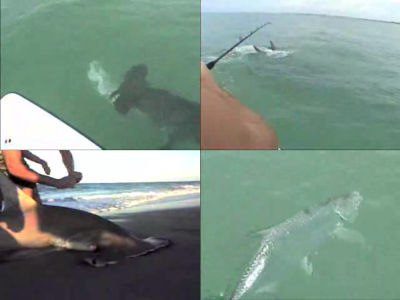The number of cases where killer whales attack ships is increasing rapidly, and experts are confused that 'I have never seen or heard such an attack'

The highly intelligent marine mammal
'I've never seen or heard of attacks': scientists baffled by orcas harassing boats | Environment | The Guardian
https://www.theguardian.com/environment/2020/sep/13/the-tale-of-the-killer-whales
On July 29, 2020, a Spanish boat aboard a graduate student in biology, Victoria Morris, was surrounded by nine killer whales in the Strait of Gibraltar. Morris, who was accustomed to a friendly flock of killer whales in New Zealand, was pleased with the encounter, but the joy turned into horror as the killer whales began to ram the boat.
The killer whale collision caused the boat to rotate 180 degrees, destroying the rudder and engine. The crew prepared a life raft and asked the Coast Guard for help, but the killer whale reportedly continued to collide with the boat for over an hour. During the clash, the killer whales were screaming as if they were communicating with each other, so Morris had to scream to talk to the crew.
Approximately an hour and a half later, Morris and his colleagues were rescued and the boat was towed to the coast. Examination of the boat attacked by the killer whale revealed that the lower rudder had disappeared and that the killer whale's tooth profile was also left behind. Rocío Espada, who has been observing killer whale populations in the Strait of Gibraltar for many years, said, 'It's crazy for killer whales to steer fiberglass. I see these killer whales growing from babies. I know their lives. I have never seen or heard of such an attack. '

According to Espada, it is not uncommon for highly intelligent killer whales to chase a ship, sometimes dragging it with a rudder. However, this action is just a 'game' for killer whales, and it is extremely rare for them to actually destroy the rudder or collide with a ship. Espada suggests that the killer whale attack may be due to some stress.
However, the case Morris encountered was not the only example of a killer whale living in the Strait of Gibraltar attacking a ship. In the waters near
'This is a very bizarre event, and I don't think they were going to attack,' said Ezequiel Andréu Cazalla, a cetacean researcher who spoke to Morris. Other killer whale experts around the world have expressed similar surprises, wondering if the killer whales are under some intense stress.

The number of killer whales in the Strait of Gibraltar has decreased remarkably, and the remaining number of killer whales is only about 50, and it has been pointed out that they may continue to decrease and eventually become extinct. Cazalla states that the Strait of Gibraltar is the 'worst place' for killer whales.
The Strait of Gibraltar, which is the main route for water transportation, is not only filled with many ships in the already narrow waters, but also tourist boats to see killer whales. It seems that whale watching tourist boats sometimes ignore speed and distance restrictions in order to chase killer whales, which adversely affects the hunting ability of killer whales and is a factor of stress.
Also, fishing boats that mainly target tuna are a particular problem for killer whales. Tuna fishing is popular in the Strait of Gibraltar, but since killer whales also use tuna as their main food, the number of bluefin tuna decreased significantly from 2005 to 2010, and the number of killer whales also decreased sharply. In addition, some conservationists believe that not only are killer whales often hurt by fishing lines and fishing nets, but sometimes fishermen intentionally attack them.
Both fishermen and killer whales can be said to be rivals chasing tuna, and there are stories that fishermen surprise killer whales with sticks that carry electricity, throw lit gasoline cans, and cut back fins. In fact, many killer whales living in the Strait of Gibraltar have unnatural scars.

However, killer whales have not attacked ships for decades, although they have been under intense stress for some time. It is speculated that the reason why killer whales suddenly became aggressive is that the pandemic of the new coronavirus may have an effect.
The pandemic that occurred in 2020 reduced the traffic of fishing, whale watching, and merchant ships in the Strait of Gibraltar, and the sea in the Strait of Gibraltar was quieter than ever for about two months. Once the pandemic subsided, ship traffic increased again in the Strait of Gibraltar, which may have stimulated killer whales in the calm waters and made them 'angry.'
The story of killer whales attacking ships has spread, and anxiety has spread among sailors around the Strait of Gibraltar. However, Espada is concerned that labeling killer whales as 'dangerous' can make conservation efforts difficult.
Experts have already presented a plan to protect killer whales to the Spanish Ministry of the Environment, suggesting that 'in the waters near Barbate, activities that generate noise in the water should be minimized.' Morris also decided to conduct research on marine biology, and many people are working to protect killer whales in the Strait of Gibraltar.

Related Posts:
in Creature, Posted by log1h_ik







